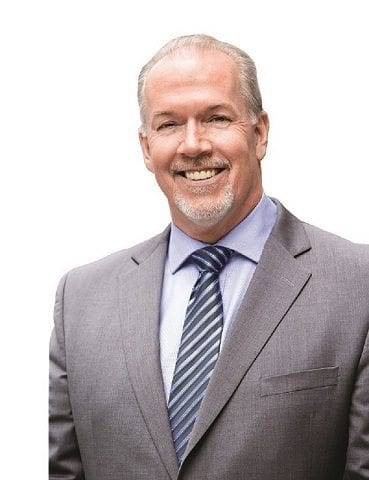A new Community Roundtable on Anti-Racism in education has been created to support the development of an anti-racism action plan and to strengthen the K-12 curriculum, ensuring the culture, beliefs and ancestry of all students and staff are accepted, celebrated and understood.
“There is no place for racism, discrimination or intolerance in British Columbia – in our schools or anywhere else,” said Premier John Horgan on Friday. “We are bringing important voices to the table to help us bolster culture-based learning in the education system and build a better and more inclusive future for B.C.”
Rob Fleming, Minister of Education, has brought together community leaders from a wide range of groups to better understand the impact of racism on B.C. students and provide input into strengthening and developing new policies and programs that promote anti-racism. The roundtable held its first meeting on Friday, July 24 and will continue to meet as the action plan is developed.
“Now is the time to listen, learn, engage and act,” Fleming said. “We are committed to working with community and education partners to build a meaningful and lasting anti-racism action plan to ensure schools are safe and welcoming places where diversity is celebrated.”
This is the first in a series of conversations to guide the ministry and B.C. education partners in understanding barriers faced by Indigenous students and students of colour. Fleming has asked the First Nations Leadership Council, the First Nations Education Steering Committee and Métis Nation BC to help set up a distinct Indigenous table and co-develop its approach. A new student advisory group will also be formed in the fall to hear directly from students on their experiences.
“Through this roundtable, we are hopeful for a more inclusive tomorrow by supporting students, families and educators today,” said Anne Kang, Minister of Citizens’ Services and responsible for Multiculturalism. “By listening and learning from the experiences of others we can all work together to build an environment that is understanding and respectful of our differences.”
The Community Roundtable on Anti-Racism in education builds on a series of community dialogues led by Ravi Kahlon, former parliamentary secretary for sport and multiculturalism, last summer. The feedback from these meetings informed the development of Resilience BC, a provincewide anti-racism network announced in November 2019. The network connects communities with the information, supports and training they need to respond to and prevent future incidents of racism and hate at a local and regional level. Resilience BC is being established in 40 communities.
Stephanie Higginson, President, BC School Trustees Association (BCSTA), said: “These conversations are necessary and long overdue. Developing an anti-racism action plan for B.C. is an important step in ensuring all students feel safe and welcome in our schools. I am pleased that Minister Fleming is moving forward with this important initiative and that the ministry is committed to listening and learning from all voices in our province. Most importantly, BCSTA looks forward to working shoulder to shoulder with education stakeholders and rights holders to move from conversations to action.”
Teri Mooring, President, BC Teachers’ Federation, added: “Confronting racism in our schools and society is important work. All students will benefit from an enhanced focus on antiracism in the K-12 curriculum. We are very happy to contribute to this important initiative.”
Quick Facts:
* All of B.C.’s 60 school districts and independent schools have codes of conduct or policies in place that align with the BC Human Rights Code to ensure schools remain free of discrimination against a person based on race, colour, ancestry, place of origin, religion, marital status, family status, physical or mental disability, sex, sexual orientation, gender identity or expression, or age of that person or class of persons.
* The provincial ERASE (expect respect and a safe education) strategy is a comprehensive prevention and intervention strategy designed to foster school connectedness, address bullying, prevent violence and provide support to school districts during critical incidents. ERASE’s online reporting tool has recently expanded to include a category for reporting incidents of racism and discrimination.
* Indigenous knowledge and perspectives are woven into B.C.’s new curriculum.
* Several new Indigenous-focused courses are offered as part of the new B.C. Graduation Program, including Contemporary Indigenous Studies 12, B.C. First Peoples 12, and expanded course options for English First Peoples 10 through 12.
* In 2019, government provided $3.1 million for Indigenous teacher training programs to ensure B.C. has more teachers trained to bring Indigenous perspectives into classrooms.










